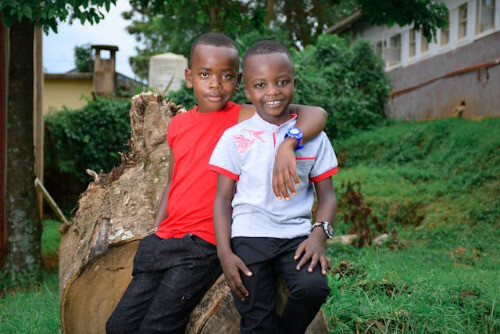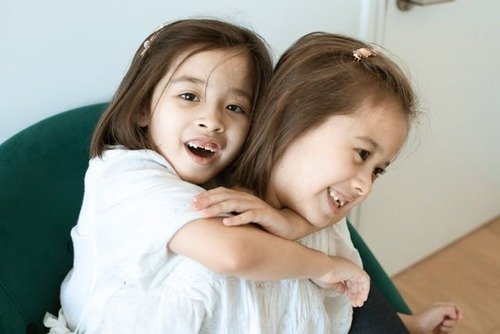Positive Role Modelling: Guiding Your Child by Living the Lessons
You want to raise your children to be kind, confident and resilient. That’s where positive role modelling comes in. It doesn’t mean you always have to do everything right.
It just means showing your children the kind of values, attitudes, and behaviors you hope they’ll carry into their own lives — and doing your best to live those values yourself, even when it’s hard.

What Is Positive Role Modelling?
In the simplest terms, positive role modelling is about setting an example worth following. It’s the quiet power of letting your actions speak louder than your words.
- When you handle stress with patience, your child learns self-control.
- When you apologize after snapping, they learn humility.
- When you help a neighbor without being asked, they learn generosity.
Children are incredible observers. They notice far more than we sometimes realize. They watch how we talk to others, how we react to frustration, how we treat ourselves when we make mistakes. And they absorb it all.
Why Positive Role Modelling Matters
1. Children Learn Through Imitation
From their earliest years, kids learn by watching. Think about the way toddlers mimic the way you talk on the phone or stir a pot in the kitchen.
As they grow, that imitating evolves into something deeper — they’re not just copying actions; they’re picking up attitudes, habits, and beliefs.
2. Builds Trust and Security
When your words and actions match, your child sees you as consistent and reliable. That consistency builds trust — they know what to expect from you and that you’ll keep your promises.
3. Encourages Long-Term Growth

The lessons your child learns from your example can guide them for life. Patience, empathy, respect — these aren’t just “good manners,” they’re life skills that help them navigate relationships, school, and eventually the workplace.
The Core Traits of a Positive Role Model
You don’t have to be a celebrity, community leader, or “super parent” to be a positive role model. In fact, the most influential role models are often the quiet ones — the everyday heroes our children live with.
Here are a some traits to keep in mind:
1. Integrity – Do the right thing whether someone is watching or not.
2. Empathy – Put yourself in someone else’s shoes, understand how they might feel.
3. Accountability – Owning up to mistakes instead of blaming others.
4. Consistency – Acting in line with your values most of the time (because no one is perfect).
5. Optimism – Seeing challenges as opportunities to grow, rather than problems or set backs.
How to Be a Positive Role Model (Even on Hard Days)
1. Show, Don’t Just Tell
Kids have a radar for hypocrisy. If you tell them kindness matters but they hear you speaking harshly to a shop assistant, the message gets muddled.
Instead, be the kindness you want to see. Smile at strangers, offer help when you can, speak respectfully even in disagreements.
2. Let Them See You Handle Mistakes Gracefully
We all mess up. What matters is what we do next. Apologize when you’re wrong. Explain what you’ll do differently next time. Your child learns that mistakes aren’t shameful — they’re part of learning.
3. Practice Self-Care in Front of Them
When you rest when you’re tired, take a break to read, or say no to extra obligations, you’re teaching them that taking care of themselves matters, too.
4. Model Respectful Communication

Use “I” statements (“I feel frustrated when…”) instead of blaming language. Listen actively when they talk, even if the topic seems trivial to you.
5. Share Your Passions
Talk about the books you love, the skills you’re learning, or the causes you support. This shows them that life is about continuous growth and that joy often comes from pursuing things you care about.
Positive Role Modelling in Everyday Parenting Moments
- Morning Rush: Instead of hurrying everyone out the door with stress, try turning on music, making a game of getting ready, and staying calm even when shoes go missing (again). Want help with those busy days in life, try my "Survival Routines For Busy Parents" ebook.
- Homework Struggles: Sit with them, show patience, and encourage effort over perfection.
- Family Meals: Share stories from your day, practice gratitude, and let everyone speak without interruption.
It’s not about being flawless — it’s about choosing moments to model the behaviors you want to see more of.
When It Feels Like You’re Not Measuring Up
Some days, you’ll feel like you’ve failed at this role modelling thing. Maybe you yelled. Maybe you were too distracted to listen. Maybe you were on the phone longer than you should have been.
These moments don’t undo the good you’ve done. They can even become opportunities. When you admit, “I didn’t handle that well or I’m sorry,” you’re showing your child how to repair a mistake — a skill that will serve them far into adulthood.
Celebrating the Joy in Role Modelling

While it can feel like a big responsibility, there’s so much joy in knowing you’re shaping your child’s view of the world. You get to be their guide, their safe place, and their example of what love, kindness, and resilience look like.
There’s magic in the moment your child repeats a phrase you’ve said a hundred times — and uses it to comfort a friend. Or when they stand up for someone, even when it’s hard. These little glimpses show that your example is taking root.
A Gentle Reminder
You don’t have to “perform” for your children. Just live your values in an authentic way. Be real with them. Let them see you working through challenges. Laugh often, love openly, and stay curious about the world.
Positive role modelling isn’t about becoming someone you’re not — it’s about being the best version of yourself and letting your child see you grow alongside them.
And on the days you feel like you’re falling short? Take a breath.
Remember: your willingness to keep trying, to apologize, and to learn is one of the most powerful lessons you’ll ever give them.
Because in the end, the greatest gift you can offer your child is "YOU".





















